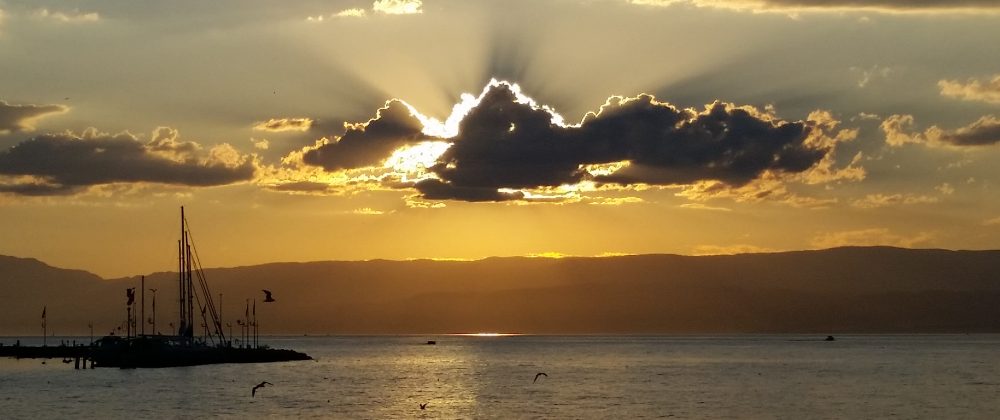July 1989
We took the Orient Express from Vienna to Budapest – at least, what was left of the Orient Express. Its dictator of over forty years, Janos Kadar, had died the week before; Hungary had opened its borders to the West. That event was to presage the fall of the Berlin Wall, but at the time, we did not know it. Adidas and McDonald’s had opened their first branches in an Eastern Bloc country; this was revolution enough. It was cheap; we were students; the city, with its ancient architecture mothballed in Soviet concrete and neglect, appeared to us authentic.
We rented a room through Ibusz, the state travel agency. Our landlady was a retired physician who rented the spare bedroom to supplement her income. By Hungarian standards she lived comfortably: a modern bathroom, two washrooms, elevators that worked. Even an air conditioner. The building itself appeared well-maintained. There was ample hot water.
She spoke only Hungarian and Italian; between my buddy and me, we could come up with English, German, Persian and a smattering of French. The language barrier meant nothing to our sweet landlady: talked without end and expressively in a wild mixture of Italian and Hungarian, peppered with German and English phrases here and there that she appeared to have picked up from previous visitors.
Our room had one bed, a couch that she prepared for us as another bed, a dresser and a small but functioning refrigerator. There were three lamps in the room, only one of which had a lightbulb in it. She told us – motioned to us – to turn it off at night. We were on the sixth floor and our bedroom window opened onto the street. As we got there in the evening, and the street appeared deserted, we thought we were in a quiet residential neighbourhood. The morning traffic jolted us out of bed around 7: the inevitable screech of the streetcar, drivers that took a sadistic joy in blowing their horns, and a stream of light shining through the flimsy curtains gave our street, and the city, a different look than the previous night. And smell: within minutes of setting out, the smell of burning oil and raw gasoline gave me a nauseating feeling and a throbbing headache, both of which went away after I poured three cups of otherwise undrinkable coffee down my throat.
We were impressed by the Parliament buildings, the National Gallery and, especially, St. Stephen’s Cathedral, which appeared to be more authentic than its sister in Vienna. If you ignored the smog and the noise, the city was actually quite beautiful, almost majestic. For one thing, the Danube in Budapest is impressive. Unlike in Vienna, the grand river goes through the very centre of the double city. Thus, the cafés and bistros that lined the river could do good business by milking the tourists for the beautiful view and the rancid stench that, back then, arose from the depths of the river. I had seen a Romanian or Hungarian move in which the hero swam the width of the Danube every morning; not this Danube, at least not the 1989 stretch of it in Budapest … without potentially dissolving himself into a pile of goo.
We were, of course, madly photographing every scene and every square. But there are experiences so intense, that one takes away more than just a memory of a place seen, a phrase heard, or a food eaten. Somehow, in those instances, the very essence of an experience stays with you: not just the cut and colour, but the texture of that moment. Budapest afforded us one such experience.
Three in the morning.
We were walking back to our room. The streets were completely deserted; we could not even get a cab. It was cool outside and a soft breeze, coming from nowhere in particular, was pushing away the smog and giving us a little air to breathe. We were hungry, even though we had had a very hearty meal earlier that evening, along with several bottles of cheap Yugoslav wine. It had been a long night and, surprisingly, some of the downtown bars and cafés had obliged us well into the small hours of the morning. About a block from our apartment we saw a restaurant; it was still open, so we went in.
A mouldy smell mixed with the smell of cooked beef and paprika made an inviting combination. We found a table that had four intact legs and two chairs that we could reasonably be certain would not collapse under us. It was too dark to see whether the table was clean and too late for us to care. The owner, chef, waiter and bartender came forward and gave us a menu, but then, sensing that we were tourists, simply asked, “Bier? Gulas?” We answered yes. Or maybe we did not. I do not recall him waiting for our answer. He brought us two steins of beer and, twenty minutes later, two generous portions of gulas. And we plunged in.
If I have had better gulas, I do not remember it. I can still taste the tender pieces of beef, the sweet smelling sauce and the beautifully prepared fingerling potatoes, garnished with parsley, that tasted absolutely divine. We ate our meal in absolute silence, each of us totally absorbed in his food, trying to savour every last bit of taste. To capture every last ounce of that magical moment. To truly feel, and absord, the texture of that experience.
